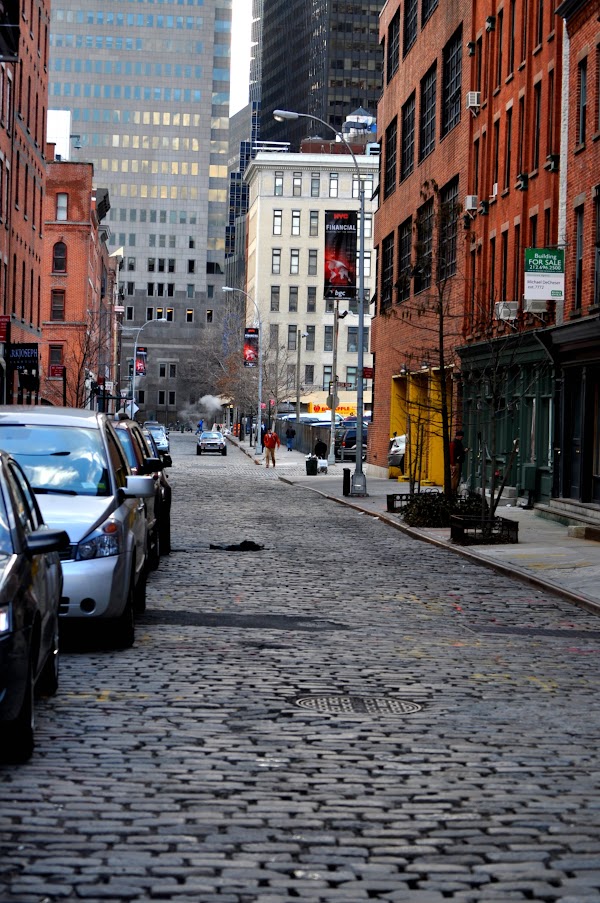I have began learning a lot about the American transportation infrastructure over the last year, and I have to say, I’m not such a fan of the automobile as I use to be. The cost to Americans just to move around from point A to point B is staggering, unhealthy (both physically and economically), and destroys the fabric of our society yes, probably more so than gays and lesbians, abortion, and bad TV. I honestly believe this, and the following is why. This post is in no way conclusive, all encompassing, nor the “end all’ – it’s just part of an adventure I’m on in seeing our world differently, it’s not designed to be political, it’s hopefully a nod to a different way of life which we have found more simple, less taxing on the overall system (in many ways) and provides us opportunity to interact with more people.
The cost is horribly high for what we “get” – most freeways spend a lot of time underutilized, they are built to attempt to work at “peak” load, making them monstrosities which eat up valuable land, create moats around communities, and in reality with every lane addition and expansion more cars hit the roads. You can see examples of this on a recent article I read here. Additionally, by making access to the hinterlands cheaper, more people moved away from the cores of our cities, creating a dependency on cars to get us around, leaving us less healthy, disconnected from community, and paying for car insurance, fuel, and fuel taxes. Some people may even begin to think of our funding system as almost socialist, since everyone is forced to pay for it in some way or another… people would scream if there was a “highway” fare (aka tolling) – like on Transit systems. The cost to build and maintain these “freeways” is very high, and becoming more expensive each year, many times construction lobbyists push for highway construction as a “jobs creator” – and we pay for it, through over budget projects, which are then passed down through state taxing systems making everyone pay, many times at the cost of other more-human scale programs and projects.
Why do I say freeways destroy the fabric of our society? Well, because it has caused many Americans to live in suburbs, and other places where getting around by car is necessary because everything is spread out. This spreading out effect took away the idea of neighbors, sure we have “neighbors” but because our houses needed to be large enough to have garages we started parking in them and never seeing our neighbors, and the land was cheap so we planted acres of lawn and built fences as well. We isolated, disconnected, and bought big TVs for our big houses, and stayed inside. We now have to drive to get even the smallest item, our children (in most cases) can’t even go bubble gum without needing a car ride, and many times it’s not even safe to walk to school because of lack of sidewalks.
Visit anywhere in “old downtown America” such as New York, Boston, Chicago, even parts of Seattle and you’ll find community, culture, and human scale life. Sure I understand big cities are not everyone’s favorite, I have nothing against small town America, my issue is with suburb America, it’s artificial, stale, and forced. Are there drawbacks to living in a large city, in high-rise apartments, yes – of course. But a well planned city, with parks, green space, and transportation for all, is a place where many different people of all backgrounds can come together and live; suburban America has a hard time allowing all kinds of people to live there because, well, you need to own a car – and not everyone can or will.
How living a low-car or car-less lifestyle can be amazing:
- Low transportation costs, more money for family/friends and enjoying our communities
- Interaction with a greater variety of people, walking, talking, sharing transit, etc. Which leads to greater understanding of the world around us (through interaction that we’ll never have with a car-dependent lifestyle).
- A society which connects and interacts, is a society that can take care of each other.
- And much more (sustainability, livability, etc).
One last though, for my fellow Christians, we are called to be people who can effect our communities and neighbors, living in places where we don’t need to drive allows us so many amazing interactions with people. Might we begin thinking of living in such places? Many times we are focused on “safe” neighborhoods, which is fine in itself to have some selectivity, but we serve a God who we know will protect us, use the brain He gave us, and trust the savior as well to protect us – and make your living location decision based on the people’s needs, and maybe even think about throwing yourself among the community, go car-less or low-car-use for a while and you might make a few friends along the way!
Alexis and I made the decision to live in a “mid-rise” apartment building in Gresham (Gresham’s only and highest) about a year and a half ago, we absolutely love it. It’s right next to a TriMet MAX station (Civic Drive) and I can walk from our top floor (fifth) unit on the far side of our building, to the platform when there’s less than four minutes to the next train. We currently have one car, since outside of our direct neighborhood, which is wonderful but has no grocery store, we need the car to get around Gresham (there’s decent transit but only on a few core streets and definitely not to where our friends live). We know that our next move will be closer to a downtown core, definitely have a grocery store within walking distance, and be someplace where anyone can get to us easily by transit.







